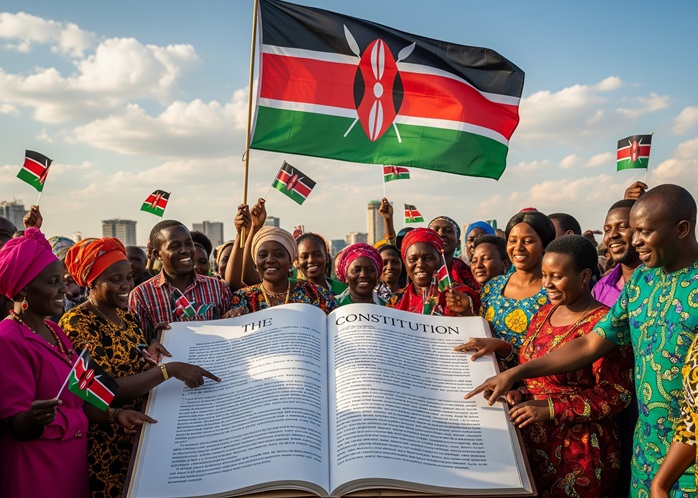Kenya’s 2010 Constitution represented a profound shift in the nation’s governance and legal framework, placing human rights at the very center of its vision. This landmark document introduced a robust and expansive Bill of Rights, which has since served as a foundational pillar for protecting both traditional human rights and, by extension, the evolving field of digital rights.
The Constitution’s Bill of Rights, outlined in Chapter Four, is one of the most progressive in the world. It provides comprehensive protection for a wide range of rights, going far beyond the limited provisions of the previous constitution.
These includes:
- Expanded Civil and Political Rights: The Constitution guarantees fundamental freedoms such as the right to life, freedom of expression, and the right to a fair trial.
- Socio-economic Rights: In a groundbreaking move, it explicitly recognizes and protects economic, social, and cultural rights, including the rights to health, housing, food, clean water, and education.
- Protection for Vulnerable Groups: The document has specific provisions to protect the rights of marginalized communities, women, persons with disabilities, and the youth, ensuring they are not discriminated against and have a voice in society.
- Institutional Safeguards: It established independent bodies like the Kenya National Commission on Human Rights (KNCHR) to monitor and enforce these rights, providing a crucial check on state power.
These provisions have significantly enhanced the ability of citizens to challenge human rights abuses and hold the government accountable, creating a more open and democratic society.
Although the term digital rights wasn’t in common use when the Constitution was drafted, the document contains several key articles that have been instrumental in protecting online freedoms.
These provisions provide a strong legal basis for citizens and civil society to advocate for a free and open internet.
Freedom of Expression (Article 33): This article is the bedrock of digital rights in Kenya. It ensures that every person has the right to “seek, receive, and impart information or ideas,” and this applies to online platforms and social media. Courts have repeatedly cited this article to protect online speech.
Right to Privacy (Article 31): In an age of data collection and surveillance, this right is more critical than ever. It provides constitutional protection against the violation of privacy and personal communications, including online data. This article is the legal foundation for challenging unwarranted government surveillance and the misuse of personal information by corporations and the state.
Access to Information (Article 35): This provision is vital for government transparency and accountability in the digital era. It grants every citizen the right to access information held by the state, enabling the public to scrutinize government actions, policies, and use of technology.
Freedom of the Media (Article 34): By protecting the independence of all media, including digital and electronic media, this article helps prevent state control over online content and ensures a diverse and free digital press.
While the 2010 Constitution provides a robust framework, the fight for digital rights is far from over. Subsequent legislation, such as parts of the Computer Misuse and Cybercrimes Act of 2018, have been criticized for their potential to stifle free speech and criminalize legitimate online activities. These laws have led to several legal challenges, with courts often having to balance national security concerns with the constitutional rights to privacy and expression.
The Constitution of Kenya remains a powerful tool for activists and citizens. It is the compass that guides the conversation on digital rights, ensuring that as technology evolves, the fundamental freedoms of the Kenyan people are not left behind. It’s a testament to the foresight of its drafters that a document written for the future continues to protect Kenyans in an increasingly digital world.
